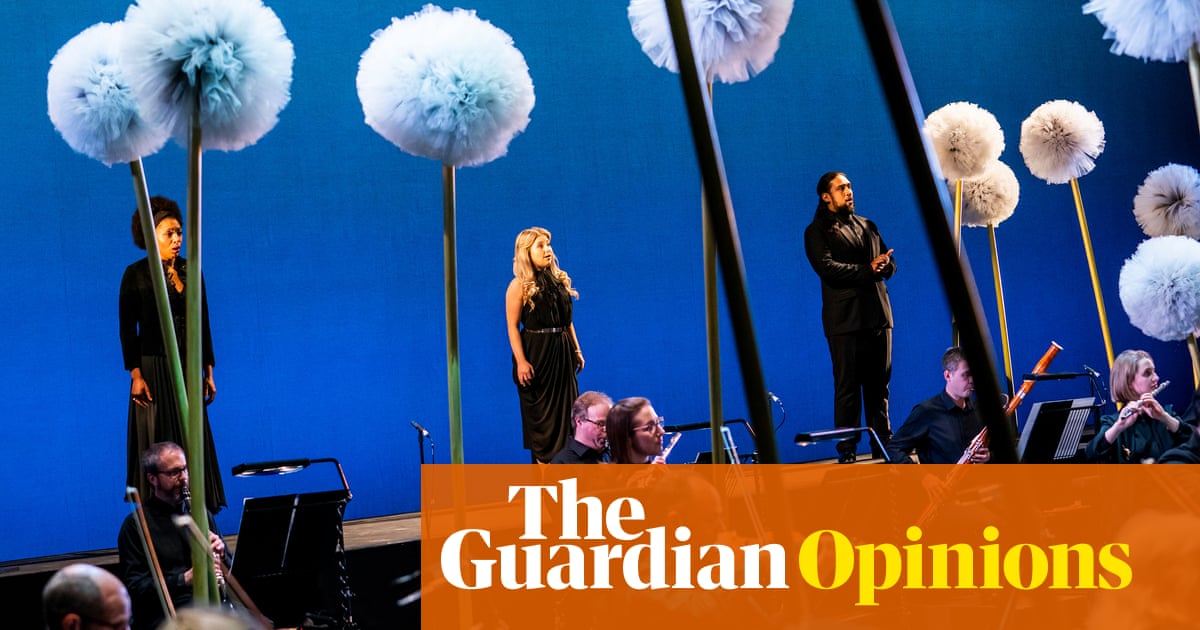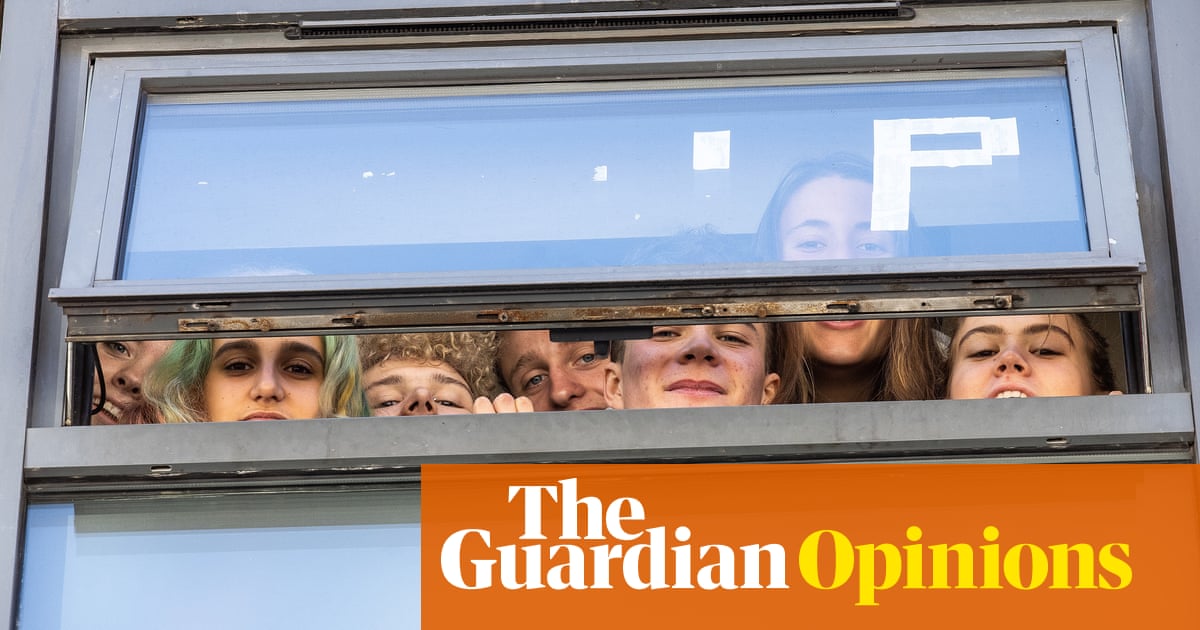
Ican’t say there’s been a lot of joy having long Covid, but something rather wonderful is happening at the London Coliseum. As part of the English National Opera (ENO) Breathe programme, more than 2,500 of us across England have been meeting in groups on Zoom to do various breathing and vocal exercises, and sing lullabies. This is not a choir, but a social prescribing intervention that uses singing techniques for breathing retraining to aid recovery from Covid-19.
Many patients with long Covid have reported that they permanently feel in “flight or fight” mode and struggle to “rest and digest” as the body should. Research shows that this is because of an imbalance in our autonomic nervous system, which is responsible for subconscious processes such as breathing, heart rate, blood pressure, digestion and temperature regulation. Using breathing and other techniques has been shown to help engage a key nerve, the vagus, which can calm an overstimulated system to address this imbalance and put on the brakes.
My ENO Breathe programme group first met in person to do a songwriting and singing workshop in December. It was a magical – and very moving – experience. Not just coming together for the first time out of our Zoom squares, but singing our favourite lullaby, the South African Abiyoyo (made famous by Pete Seeger), on the Coliseum stage. Some came in wheelchairs, some struggling to breathe, but all were there with purpose and joy.
Now, four months later, we are back again. A small group is brainstorming ideas for a new lullaby. The theme is dusk. We come up with words, facilitated by writer Hazel Gould, and compose the music, helped by musician Jack Ross and ENO Breathe creative director Suzi Zumpe. It’s a magical afternoon. It’s not just about the writing, it’s also about being with people who have a silent, shared understanding of each other’s condition. No one bats an eyelid when I lie down on the floor – the hour’s journey to get here is enough in itself to wipe me out. And soon a couple of others follow suit.
This programme is not offered by the NHS, but you have to be referred by the NHS. It fills a huge gap for people with ongoing symptoms, many of whom are still unable to access overstretched long Covid clinics, run by multidisciplinary teams often in addition to their usual work. Social prescribing interventions have been gaining traction and funding in the NHS, and until research identifies specific treatments for long Covid, programmes like this need to be readily accessible.
Following a study in The Lancet, which showed how the programme helped improve both breathing and quality of life, both Scottish Opera and Welsh National Opera set up their own versions.
Our group’s theme of dusk seems perfect to me as, for a long time, it has felt as if we are living in a twilight zone with this disease: somewhere between our old lives and the confines that long Covid dictates. Life is somewhat suspended. Some words immediately pop into my head on the theme: A time to reflect and draw breath, A moment’s pause between two worlds, Lives suspended, anticipation of hope.
But we are not here just to write a song. We are here to write a song that we will perform on the Coliseum stage on 3 May in front of an audience before the main opera, Symphony of Sorrowful Songs, that night. And with part of the orchestra too. That’s about the most exciting thing to happen for many of us since getting long Covid. And for that we have the ENO to thank, despite drastic funding cuts by Arts Council England, resulting in fewer staff on the Breathe team.
A few days later, we are on the Coliseum stage. I’m reclining in a beanbag, gazing up at the ornate domed ceiling. Jack is tuning up his guitar, Suzi and Hazel are running through some last-minute ideas. A TV monitor on the stage allows our fellow participants to join us from home – some unable to get here because it is still too much of an ordeal.
I’m really flagging for the last 45 minutes. I get lower in my beanbag, legs outstretched, and can’t wait to be horizontal. Yet when we finish and step out into the cold night air, I am exhilarated, even energised, and already excited about the next instalment. But there is a lot of work to do to get the tunes into our brains, let alone commit all those words we wrote to memory.
Who would ever have thought that long Covid would lead to performing on one of the most prestigious stages in the West End?
Joanna Herman is a consultant in infectious diseases in London, and teaches at the London School of Hygiene and Tropical Medicine
Comments on this piece are premoderated to ensure discussion remains on topics raised by the writer. Please be aware there may be a short delay in comments appearing on the site.












